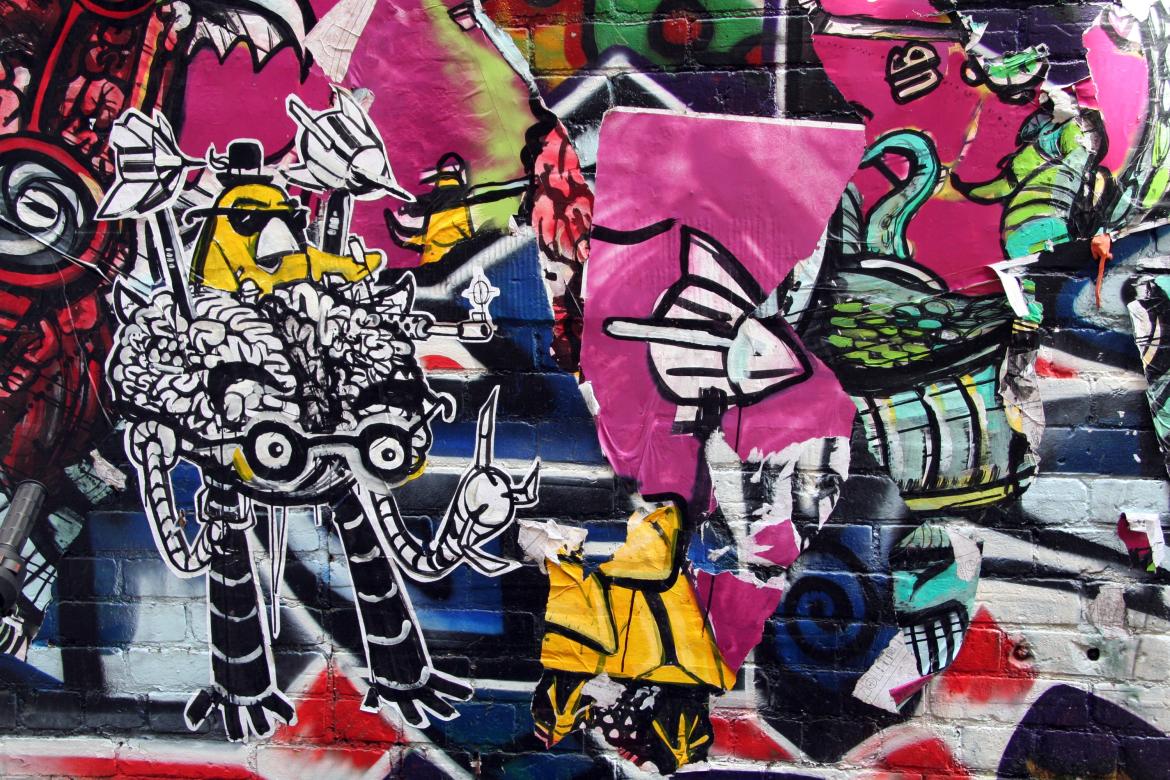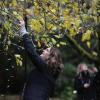
Persuasive, pervasive media messages are everywhere, from digital media in ever increasing forms, to the street art we pass every day.
January 16, 2015 - 3:45pm
The digital world we inhabit requires we pay close attention to interpreting what we see and how we allow the hundreds of messages we receive daily to shape our thoughts and actions, according to Dr. Marshall Soules, an Honorary Research Associate in the Departments of English and Media Studies at Vancouver Island University (VIU).
Dr. Soules will present an illustrated talk Friday, Jan. 23 at VIU, entitled “Media, Persuasion and Propaganda.” All are welcome to attend the free presentation in the Arts and Humanities Colloquium Series, from 10 to 11:30 am in the Malaspina Theatre (Building 310). Doors open at 9:30 with light refreshments in the theatre foyer.
"We live in a saturated media environment, crowded on all sides by persistent, persuasive messages," says Soules.
The techniques and the psychology behind the messages we receive have become increasingly sophisticated in the "age of persuasion," Soules adds, involving a century of applied research in advertising, advocacy, public relations, mass entertainment and social control.
"In our time," argues Soules, "creative deception keeps us amused and confused."
His presentation will explore persuasion across the disciplines and challenge widespread beliefs about news-making, democracy, expert opinion, social influence, activism and deception in societies where "truth happens to an idea."
Questions Soules will explore in his presentation include the following: Where do persuasive messages originate and how are they propagated through media? What is the relationship between publicity and news in a time when public trust in politicians and journalists is so low? How do we use recent discoveries in cognitive science to promote a cause, advocate social change, or market ideas and products? How do we defend ourselves against manipulation and undue influence? And when does persuasion turn into propaganda?
"Persuasion and propaganda have consequences," notes Soules, "and we need tools -- both old and new -- to decode the stories, biases, stereotypes and metaphors attempting to influence us."
Dr. Soules taught at VIU from 1987 to 2009 and was awarded the Outstanding Service Award by the university in 2011. His Colloquium presentation is a preview of his new book, Media, Persuasion and Propaganda, which will be available from Edinburgh University Press in February 2015.
Previous published work by Dr. Soules reflects his interest in performance, improvisation, digital media and street art. He has investigated graffiti and wild postering, the Cuban government's use of billboards to spread propaganda, and the collective improvisations and expressions on the walls of the Downtown Eastside of Vancouver by the people who live there.
Remember to mark your calendars for upcoming presentations in the Arts & Humanities Colloquium Series:
February 13 - Dr. Janis Ledwell-Hunt, English Department presents “Disordered Eating: How Can Feminism Help? “
March 27 - Joy Gugeler, Departments of Media Studies and Creative Writing presents “Firing the Canon and Hiring the Reader: How to Win the Classroom War on Can Lit.”
-30-
Media Contact:
Shari Bishop Bowes, Communications Officer, Vancouver Island University
P:250.740.6443 C: 250.618.1535 E: Communications@viu.ca
Tags: In the Community






